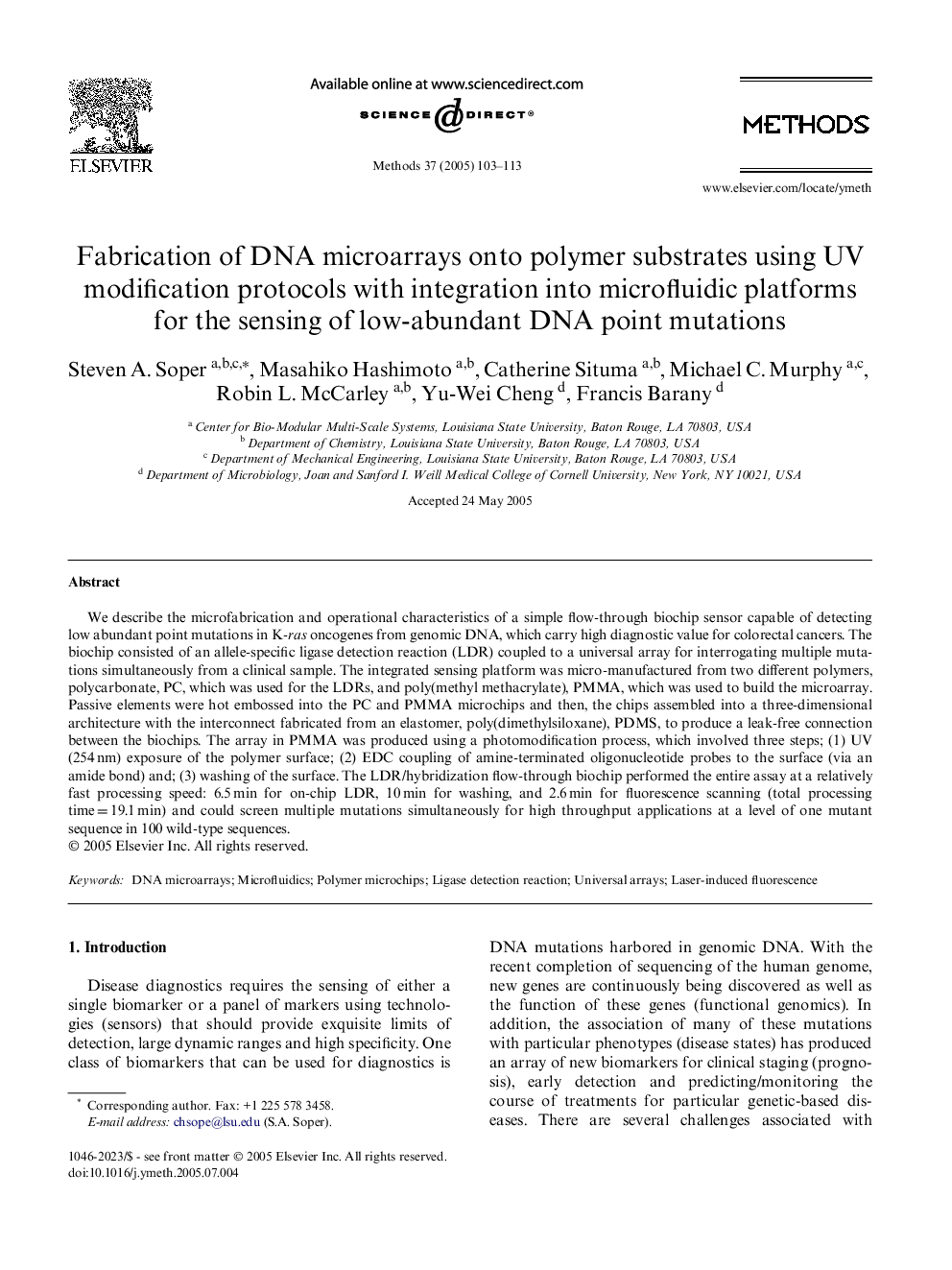| Article ID | Journal | Published Year | Pages | File Type |
|---|---|---|---|---|
| 10826666 | Methods | 2005 | 11 Pages |
Abstract
We describe the microfabrication and operational characteristics of a simple flow-through biochip sensor capable of detecting low abundant point mutations in K-ras oncogenes from genomic DNA, which carry high diagnostic value for colorectal cancers. The biochip consisted of an allele-specific ligase detection reaction (LDR) coupled to a universal array for interrogating multiple mutations simultaneously from a clinical sample. The integrated sensing platform was micro-manufactured from two different polymers, polycarbonate, PC, which was used for the LDRs, and poly(methyl methacrylate), PMMA, which was used to build the microarray. Passive elements were hot embossed into the PC and PMMA microchips and then, the chips assembled into a three-dimensional architecture with the interconnect fabricated from an elastomer, poly(dimethylsiloxane), PDMS, to produce a leak-free connection between the biochips. The array in PMMA was produced using a photomodification process, which involved three steps; (1) UV (254 nm) exposure of the polymer surface; (2) EDC coupling of amine-terminated oligonucleotide probes to the surface (via an amide bond) and; (3) washing of the surface. The LDR/hybridization flow-through biochip performed the entire assay at a relatively fast processing speed: 6.5 min for on-chip LDR, 10 min for washing, and 2.6 min for fluorescence scanning (total processing time = 19.1 min) and could screen multiple mutations simultaneously for high throughput applications at a level of one mutant sequence in 100 wild-type sequences.
Related Topics
Life Sciences
Biochemistry, Genetics and Molecular Biology
Biochemistry
Authors
Steven A. Soper, Masahiko Hashimoto, Catherine Situma, Michael C. Murphy, Robin L. McCarley, Yu-Wei Cheng, Francis Barany,
